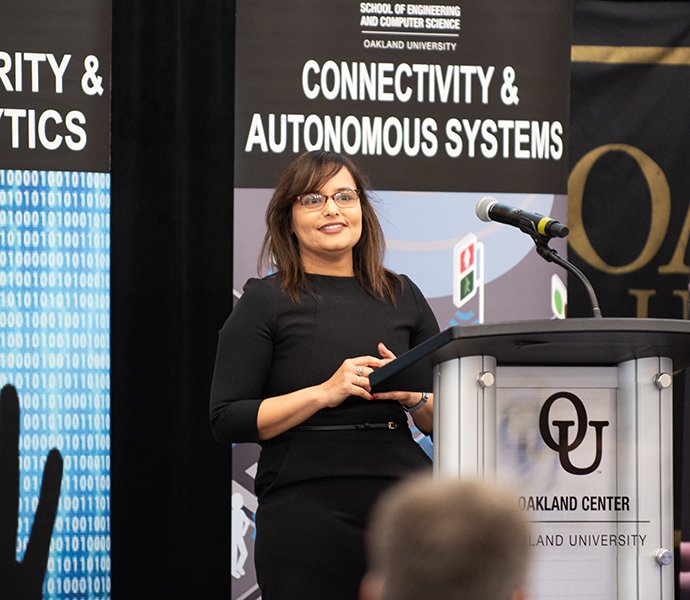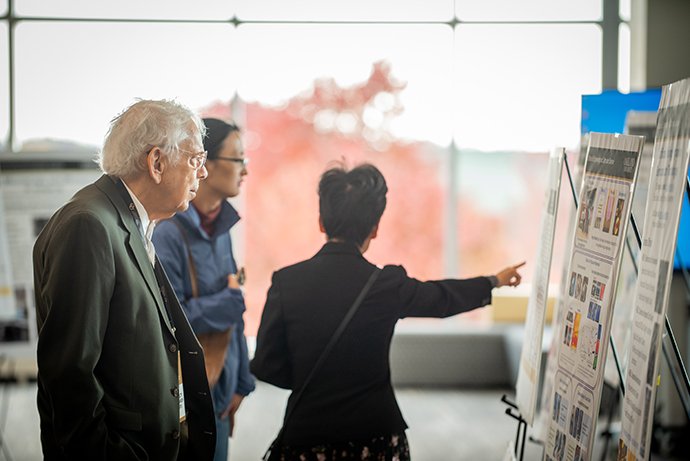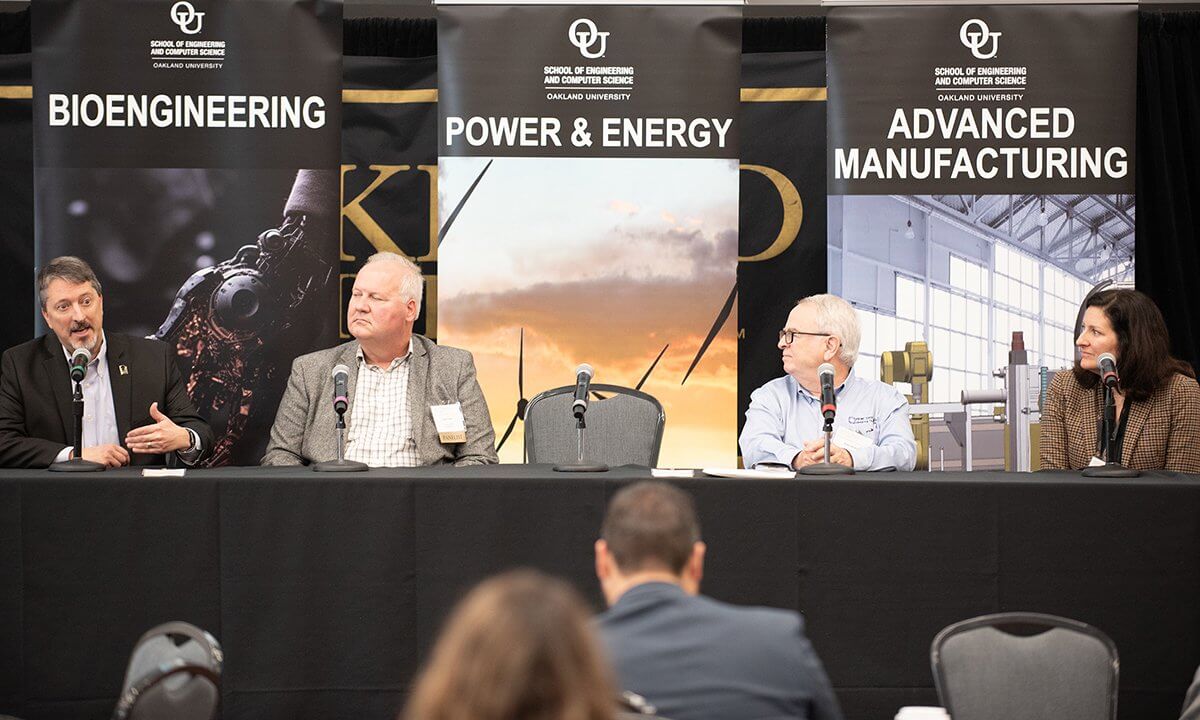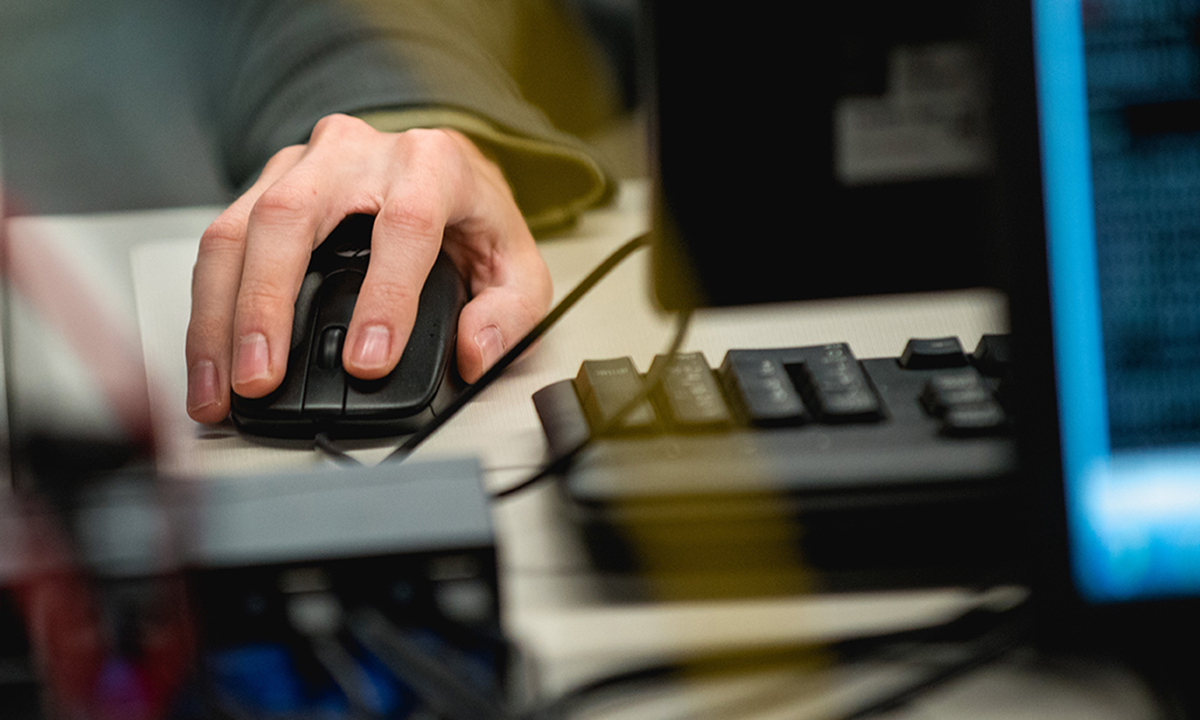Exciting Possibilities
Participants from various industrial sectors as well as local, state and federal agencies came together to witness SECS’ research capabilities, share insights and form partnerships to move industry forward.
On October 27th, 2023, the School of Engineering and Computer Science 2023 Faculty Research Expo, sponsored by Automation Alley and Dataspeed, brought the sense of optimism to both presenters and attendees alike. Over 130 participants from various industrial sectors as well as local, state and federal agencies came together to witness SECS’ research capabilities, share insights and form partnerships to move industry forward.
“Let’s work together to bring the industry’s next big breakthrough. We hope to get your feedback and join together, industry and academia, to keep Michigan competitive in all aspects of technology and engineering,” said Louay Chamra, SECS Dean, in his opening remarks.
 |
| In her keynote presentation, Aruna Anand described personal mobility as a basic human need. |
Keeping Michigan, an automotive backbone of the country, competitive is not an easy task. As president and chief executive officer for Continental Automotive North America, Aruna Anand, SECS ’99, shared in her keynote presentation, the automotive landscape is going to look drastically different in the current decade, with such trends as electric vehicles, autonomous and shared mobility, and the need for more computing power transforming the ways people move.
Being on the front lines of the shift in mobility, Anand described personal mobility as a basic human need with freedom to move constituting part of the human genetic make-up. To continue improving lives, industry seeks solutions that combine technology, innovation, and sustainability. “In the next decade, we will see a significant shift in the way society moves, exchanges, and connects. Specifically, there will be transformations in AI, autonomous trucking, sustainability, and the way vehicles communicate with each other and their surroundings,” she said.
Given a close geographic proximity to many key industries and its expanding research base, Oakland University is well-positioned to support industry’s needs in such strategic research areas as advanced manufacturing, AI, cyber security, and data analytics, autonomous and connected systems, bioengineering, and power and energy.
“We have strategically grown our research awards from $2M per annum to $9.5M in AY2022,” stated Daniel N. Aloi, Ph.D., SECS director of research, in his SECS research outlook. Dr. Aloi also shared an overview of SECS academic departments, labs and centers, research facilities' unique capabilities, along with a multitude of research activities available to companies at the SECS Engineering Center.
 |
| Research posters and interactive research demonstrations engaged participants, who were asking questions and making connections with SECS faculty. |
A panel discussion, moderated by Darrin Hanna, Ph.D., professor of computer science and engineering, further explored the adaptation of technology within manufacturing. The panelists, including Automation Alley's executive director and CEO Thomas Kelly, Dataspeed founder and president Paul Fleck, University of Michigan Innovation Partnerships Commercialization Program director Meghan Cuddihy, and RHK Technology founder and president Adam Kollin, engaged in lively discussions, sharing profound insights that made participants ponder the limitless potential of technology.
Michigan Economic Development Corporation CEO, Quentin Messer, Jr. CEcD, charged with implementing and executing MEDC’s core mission of business development and attraction, wrapped the formal part of event by giving a much-needed economic perspective on the pursuit of business in Michigan to keep the state at the forefront of research and progress.
As participants made their ways through research posters and interactive research demonstrations, asking questions and making connections with SECS faculty, the feeling of excitement filled the room. From concepts to reality, the future of manufacturing is looking much brighter when academia and industry come together.

 December 20, 2023
December 20, 2023
 By Arina Bokas
By Arina Bokas









